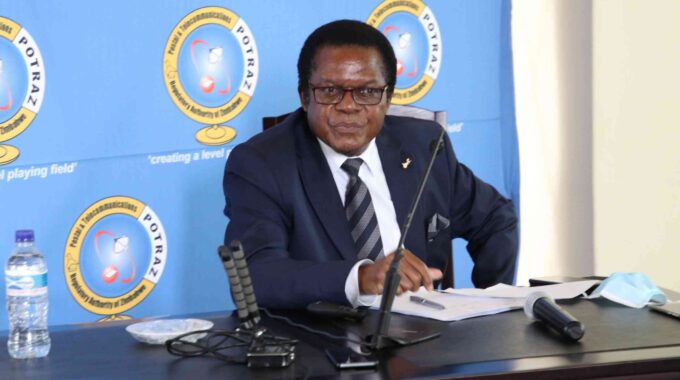Potraz sets new ZiG tariffs

Business Correspondent
THE Postal and Telecommunications Regulatory Authority of Zimbabwe (Potraz) has set new tariffs for the telecommunications industry in the new Zimbabwe Gold (ZiG) currency following its introduction last week.
According to Potraz, voice tariffs for mobile network operators have been set at ZiG 0.0098 per second with Data now selling at ZiG 0.0928 per megabyte while SMS now costs ZiG 0.1207 per SMS.
The new telco tariff adjustment follow a crucial stakeholder engagement meeting convened by Potraz in Harare last week.
It also comes in the wake of a key industry report highlighting the crippling impact of low tariffs on service providers.
The new ZiG tariffs reflect an estimated 80 percent adjustment in the local tariffs.
However, the last review of telecoms tariffs was granted in October 2023 when the exchange rate was ZWL5 600 to US$1. By the end of March 2024, the exchange was hovering around US$1 to ZWL30 000, reflecting an 81.3 percent depreciation in the local currency.
This means local telco tariffs before this current adjustment were now about 19 percent of their value in October last year.
Industry analysts have said the new tariff adjustments, therefore, still falls short, as it means that to get back to the October level of telco pricing, the new tariff increase would have to be 212 percent.
Potraz director-general, Dr Gift Machengete, warned delegates at the stakeholder engagement meeting last week that a failing ICT sector would hurt everyone.
“As the regulator, we are faced with the imperative need to consider tariff adjustments to protect our sector from collapse,” he said.
“The ICT sector plays a fundamental role in driving economic growth, fostering innovation, and improving the quality of life for people around the globe. However, these advancements come at a cost.
“From the deployment and maintenance of infrastructure to the development of cutting-edge technologies and services, the ICT industry requires substantial capital investment to remain competitive and meet the evolving needs of society.”
Dr Machengete said without sufficient revenue generated from tariffs, ICT operators may struggle to fund essential infrastructure upgrades, expand network coverage to underserved areas, or invest in research and development initiatives.
“While consumers rightfully seek affordability and accessibility, it is essential to recognise that maintaining an ICT infrastructure of high quality and reliability requires adequate investment and sustainable revenue streams,” he said.
An annual sector performance report released by Potraz early this month also highlighted the impact of hyperinflation on the sector and the need to constantly adjust pricing to mitigate the ever-increasing cost of service provision.
“The hyper-inflationary environment that prevailed in 2023 posed significant challenges across the sector. This resulted in significant increases in the cost of providing services,” reads the report.
“Revenue to cost ratios diminished for most operators, which is a signal for diminishing profitability across the sector. This is a worrying situation, which calls for consistent alignment of service charges to the increasing cost of service provision.
“Unless this problem is addressed, profitability will continue to diminish with implications on sector investment, innovation, and development,” the report said.
Players in the sectors have said the industry’s last tariff adjustment in October 2023 hardly made a dent on operators’ viability due to the local currency’s depreciation, putting pressure on Zimbabwe’s telecommunications sector, which is battling many challenges including legacy debt, limited foreign currency availability and infrastructure vandalism.
The sector has also been grappling with constant power outages, forcing operators to rely on expensive diesel backup generators, they noted.
Speaking at the stakeholder engagement meeting, Dr Machengete said while the need to increase tariffs may seem counterproductive in a world where affordability is paramount, it was crucial to strike a delicate balance between ensuring access to essential ICT services and safeguarding the long-term viability of the sector.
The telecommunications sector tariff adjustment comes at a time when electricity has since gone up by 20 percent, since last October, to US$0.12kwH.










Comments